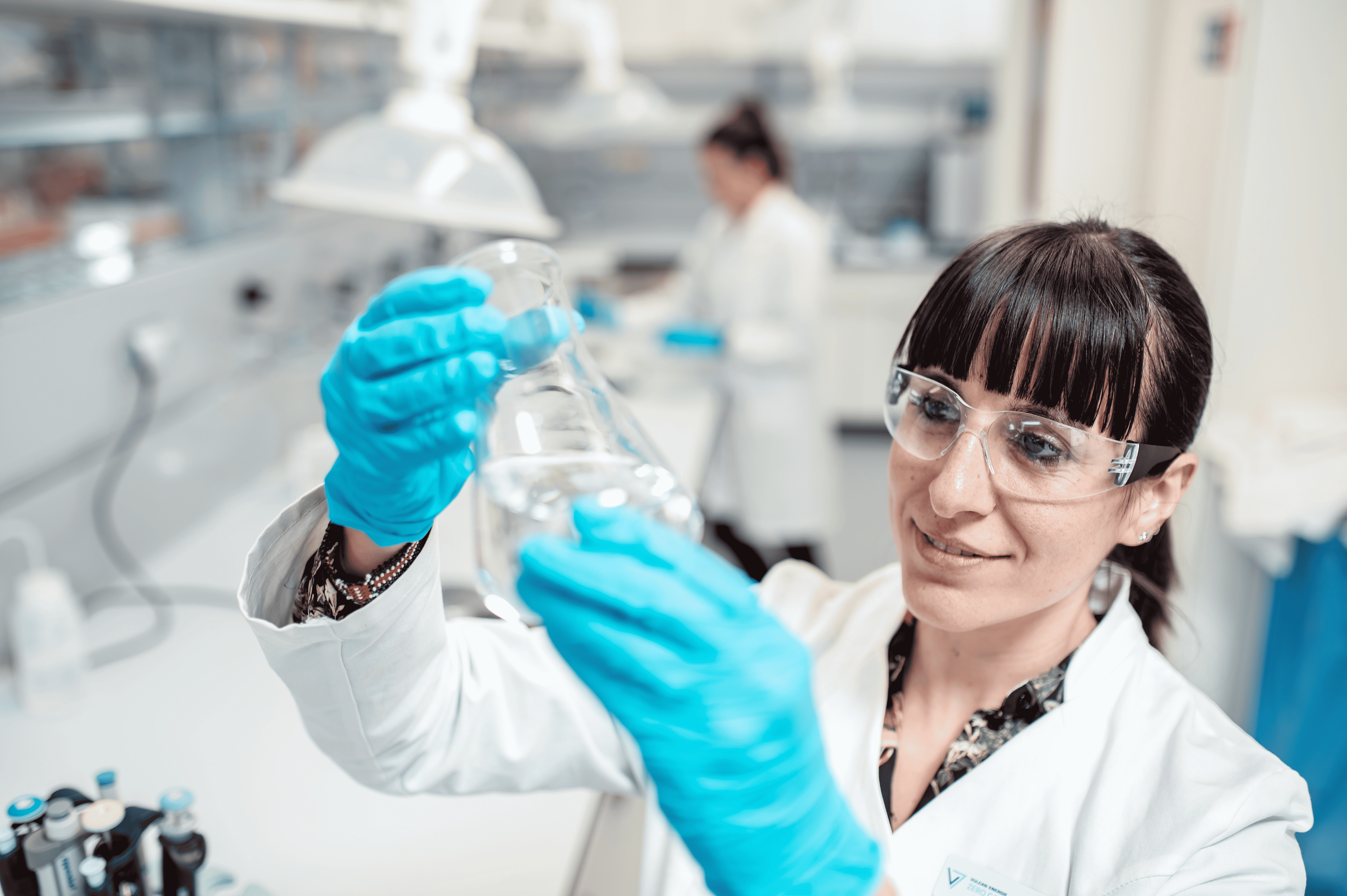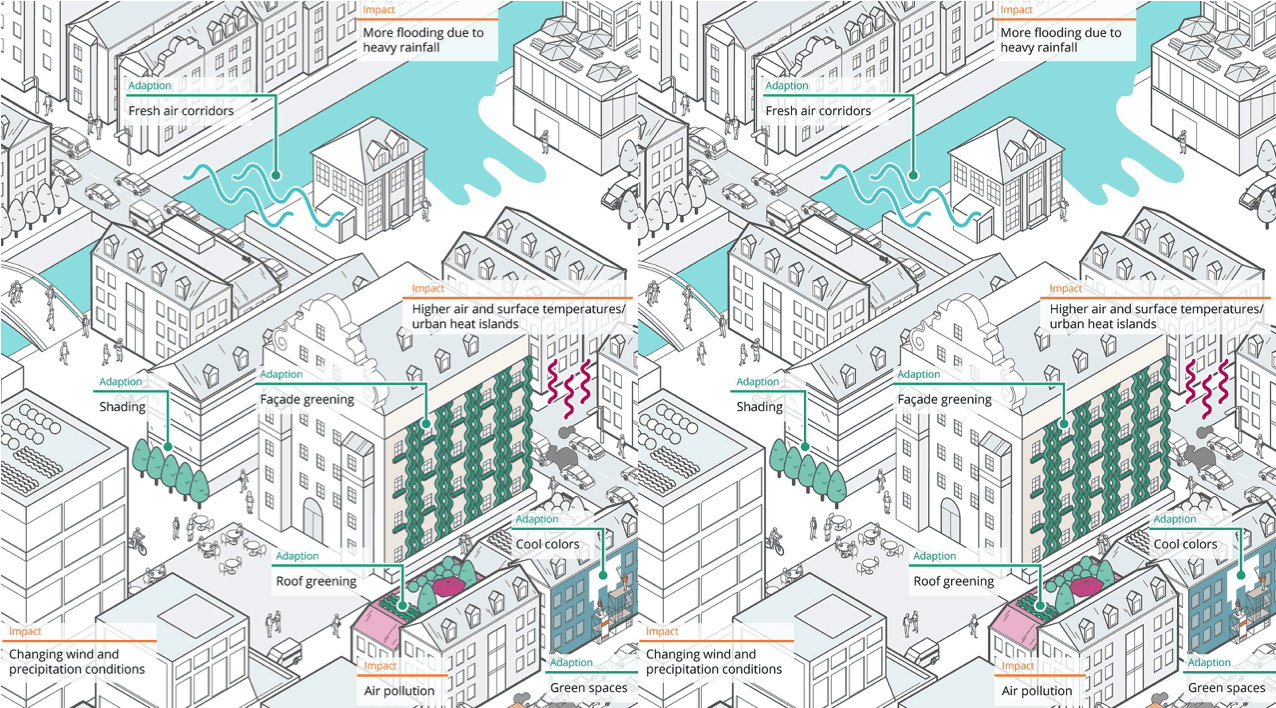
Researchers at Fraunhofer have been developing a testing and technology platform located on-site at a large wastewater treatment plant. Here they work on new methods for cleaning and recycling waste water from one of the largest chemical parks in Europe. Idealy, the new technology shoulds also allow energy and valuable raw materials to be retrieved so that they can be reused in production, writes the institute in a press release.
Modern analysis methods are now able to detect the most minuscule concentrations of harmful substances in water that previously went unnoticed, including pharmaceutical and chemical residues (also known as micropollutants). There is no reason for this to cause panic, though. “The water quality in Germany is just as good as ever before,” says Dr. Burkhardt Faßauer, head of the Circular Technologies and Water department at the Fraunhofer Institute for Ceramic Technologies and Systems (IKTS.) “However, we do need to prepare ourselves for the challenges of the future.”

An on-site research platform
Fraunhofer has now started a project that will take the treatment of industrial wastewater to the next level and should enable bodies of water and drinking water to be even more efficiently protected. Another objective of this project is to collect recyclable materials from wastewater. “Some of the residuals or process chemicals in industrial wastewater can be reused in the industry as raw materials. This holds for various salts and metals, for example. We are developing processes to retrieve these raw materials from wastewater,” explains Faßauer.
The special thing about this project is that Fraunhofer researchers did not install their technology platform in the laboratory. Instead, they deployed a range of test containers on-site at the joint water treatment plant in Bitterfeld-Wolfen. This is one of the most modern wastewater treatment plants in all central Germany. As well as communal wastewater, the plant primarily treats industrial wastewater from just under 300 businesses in the Bitterfeld-Wolfen Chemical Park, one of the largest in Europe. “Our on-site presence means that we have targeted, consistent access to the relevant amount of certain wastewater. As such, we can conduct our experiments on an almost industrial scale and under real-world conditions,” says André Wufka, group manager for Systems Engineering for Water and Wastewater.
A major advantage of the technology platform comes from its modular design. Aggregates and systems can be replaced at any time or moved to another location in the process. As such, the teams of experts can reproduce, analyze, reposition and optimize the technical processes at the wastewater treatment plant however they desire.

State-of-the-art equipment for wastewater treatment
The team of scientists is using state-of-the-art equipment to tackle the issue of wastewater. The experts are exploring new avenues in this regard: They are continuing to develop existing processes, combining conventional methods to develop new processes, and working on innovative and – ideally – disruptive technologies.
An example of this is intelligent, switchable membranes that detect specific micropollutants and separate them. In addition to membranes and biological and electrochemical methods, the researchers are also using the latest sensor technology. “We are testing, for example, the performance of new sensor systems. In these systems, the pollutant molecules adhere to a nanostructured sensor substrate, and when this happens, the light refraction changes. The sensor registers the change in the refractive index and can use this to measure the pollutant concentration in the water. This could be used to control a cleaning process,” explains Wufka.
Salts damage flora and fauna
As well as testing new technologies to treat industrial wastewater, Fraunhofer experts are tackling another problem: residues such as salts that accumulate during the cleaning process. These are often found in production wastewater, but even the cleaned water still contains a certain level of salts.
“If large quantities of these salts enter rivers, this can cause problems. During heat waves such as those we’ve experienced this summer, river water levels drop, meaning that the concentration of substances present in the water increases. This can have serious consequences for flora and fauna in rivers,” says Wufka. Researchers at Fraunhofer IKTS are therefore working with partner institutes to develop not only more effective solutions for removing salts from wastewater but also solutions for recycling these extracted salts.
Production-oriented environmental protection for companies
The filter and cleaning technologies developed in the project benefit wastewater treatment plants but can also be directly used in industrial production. In this case, Fraunhofer researchers can make use of their technology platform’s flexibility to test suitable cleaning strategies for industrial customers’ specific problems or needs. “Companies in the chemical industry, for instance, can set up a system that we
developed for recovering raw materials from wastewater directly in their production hall,” explains Faßauer.
Max Fuhr, commercial director of the Bitterfeld-Wolfen Chemical Park, relies on the work of Fraunhofer researchers: “Separating and recovering reusable raw materials from process water has a vital role to play in the circular economy and is the key to efficiency in industrial production. It also lowers costs. What’s more, we expect that innovative treatment technologies will help us to use water even more sustainably in the future and to attract more innovative companies to the park.”
The idea of a pilot system at the premises of the wastewater treatment plant initially arose from discussions between wastewater treatment plant experts and Fraunhofer IKTS researchers. “The result is Europe’s first testing and innovation platform for the treatment of industrial wastewater – an achievement we are very proud of,” says Faßauer.

Selected for you!
Innovation Origins is the European platform for innovation news. In addition to the many reports from our own editors in 15 European countries, we select the most important press releases from reliable sources. This way you can stay up to date on what is happening in the world of innovation. Are you or do you know an organization that should not be missing from our list of selected sources? Then report to our editorial team.






